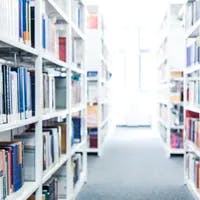
IB Theory of Knowledge: Areas of Knowledge Explained
Contents
The Theory of Knowledge (TOK) course is a fundamental part of the International Baccalaureate Diploma Programme. The course is intended to encourage students to think critically about the nature of knowledge and how different areas of knowledge are related. It provides an opportunity for students to question the assumptions and biases that underlie knowledge claims and to recognise the value of different perspectives.
The course is structured around five areas of knowledge:
- History
- The human sciences
- The natural sciences
- The arts
- Mathematics
The IB explains each of the areas of knowledge TOK Guide, for first assessments from 2022. This is a lengthy document, so we’ve summarised the most important points about areas of knowledge for you here. You’ll also find helpful tips for you to excel at the Exhibition, the Essay, and understanding TOK more broadly here.
Remember to also read our article on how to navigate knowledge questions and the themes. In order to grasp the topics that you are feeling difficult, you should consult a good IB TOK tutor.
History
Studying history involves exploring and inquiring into the past, raising questions about the meaning and certainty of historical facts. History is particularly interesting for TOK discussions due to the challenges of not being able to directly observe the past and the limitations of inquiry methods used in other areas of knowledge. It also promotes empathy and understanding of people from different places and times.
In the course, students examine the role of documentary evidence in interpreting the past, the reliability of historical sources, and the interpretive nature of history that allows for multiple perspectives. They also explore the concept of historical significance, such as why certain aspects are recorded and preserved, and how history can be used to promote a dominant perspective. Additionally, students reflect on recent controversies surrounding historical events taught in high school history lessons and how different textbooks can tell different versions of history.
In the TOK essay and exhibition, choosing History as an area of knowledge to examine presents an interesting chance to engage with TOK in conjunction with personal knowledge - from the student’s History class or from their personal interest in history, perhaps from their local area or culture.
Boost your grades with our revision platform, used by 100,000+ students!
Access thousands of practice questions, study notes, and past papers for every subject.
The human sciences
The human sciences encompass a wide range of fields that investigate human behaviour and existence. This includes disciplines such as psychology, sociology, anthropology, economics, political science, and geography. The diversity of the human sciences can be a source of intriguing discussions.
The different perspectives and methodologies within a single discipline, such as the contrasting approaches in psychology, can be a focus of examination. Additionally, students can explore the similarities and differences between the human sciences and natural sciences with regards to the definition of science, data collection techniques, and the validity of hypotheses. The use of polls and questionnaires in the human sciences is another topic of discussion, specifically in regards to the reliability of data and the effects of leading questions, sampling bias and other issues. Additionally, the impact of external factors such as politics, culture, and finances on the type of research conducted in the human sciences can be evaluated. These discussions can lead to a deeper understanding of the goals and context of knowledge creation in the human sciences and raise thought-provoking knowledge questions.
As a diverse area of knowledge, the human sciences will attract many students as an area of knowledge to analyze in the essay and exhibition, as it relates to a number of IB subjects that students will have interesting examples to engage with from.
Get expert help with your IB TOK
The world's leading online IB TOK tutoring provider trusted by students, parents, and schools globally.
The natural sciences
The natural sciences encompass a vast array of fields that delve into understanding the natural world through the use of evidence and logical reasoning. Key methods employed in natural sciences include observation and experimentation, and terms such as "theory" hold a distinct meaning within this area of knowledge compared to how they are used in everyday language or other areas of study.
Discussions on natural sciences could center on what sets scientific methods apart from non-scientific or "pseudo-scientific" ones and the factors that contribute to the high level of reliability of knowledge generated by scientific methods. Another point of focus could be the evolution and progression of scientific theories, such as paradigm shifts and the impact of technological advances on scientific discoveries. Students could also examine the role of community consensus and the scientific community in evaluating scientific claims, and the extent to which scientific knowledge should be subject to public scrutiny. Furthermore, the influence of funding on research priorities within the natural sciences can also be analyzed.
The natural sciences are a great starting point for many TOK essay prompts, as the relative rigidity of the scientific method provides a good point of comparison with the other areas of knowledge. As every IB student takes a science, everyone should examples to assess which genuinely captivate their interest.
Have a look at our comprehensive set of IB TOK Resources, developed by expert IB teachers and examiners:
📚 View IB TOK Study Notes
The arts
The arts encompass a wide range of disciplines: visual arts, theatre, dance, music, film, literature, and more! The diversity of forms and methods provide an excellent opportunity for discussions in class, in the TOK essay, and in the exhibition.
Discussions in the arts will likely center around concepts such as interpretation. This includes how meaning is attributed to works of art and the potential importance of the artist's intention in determining meaning. The role of the audience in the arts should also be analyzed: the emotional response and interaction with the audience, the role of critics and experts, and the idea that everyone can be an equally competent judge. The social aspect and function of the arts will provide a fruitful basis on which to explore real life examples. This will likely include art as a reflection of the human condition and as a medium for social criticism and change.
The ethical considerations in the arts overlap with this key concept of TOK, including considering the limits to what is acceptable in art and the ethical responsibilities of artists. The relationship between the arts and culture will be a further chance for debate in the classroom and in work, including the examination of art rooted in a particular culture or tradition, and the diversity of the arts across time and cultures. The concept of "outsider art" could be useful as a means to stimulate conversations about the potential for art to challenge established values.
Tip: If you're struggling with the subject, consider seeking help from a professional IB tutor. They offer specialised support, making complex topics clearer and more manageable. Their guidance can be a great asset in your academic journey.
Mathematics
A senior IB TOK tutor noted that mathematics is often perceived as having a high degree of certainty and being built on universally accepted definitions and basic assumptions. This makes it a valuable source of material for discussions.
One area of focus could be the status of mathematics as an area of knowledge, examining why other fields in the human sciences often express their conclusions in mathematical terms and why mathematical treatments of a topic are often seen as a sign of intellectual rigor. The role of creativity, imagination, beauty, and elegance in mathematics can also be explored, despite the strict confines of mathematical logic, mathematics can be a highly creative subject and asking its practitioners to make great leaps of imagination.
The relationship between mathematics and the real world can also be examined, including how mathematics is used to model real-world processes, but can also seem abstract and detached from the real world. Additionally, the role and significance of proof in mathematics and how it relates to concepts such as truth can be discussed, and whether the term "proof" is used differently in mathematics compared to how it is used in everyday life or other areas of knowledge.
Comparing between areas of knowledge
It is helpful to consider knowledge production, interpretation, and the nature of knowledge differs between the areas of knowledge. This is an opportunity for students to come up with more nuanced analysis in their Exhibitions and Essays.
Students should use the ‘knowledge frameworks’ to structure their comparisons between areas of knowledge. For example, the role of perspectives is very different between areas of knowledge. It could be argued that knowledge in history and the arts is more dependent on perspective than in mathematics or the natural sciences. This facilitates discussion of the different types of evidence available and how knowledge in each of the areas has changed over time.
Conclusion
Mastering the Theory of Knowledge course is key to unlocking the critical thinking skills at the heart of the IB Diploma Programme. By engaging deeply with the five areas of knowledge—History, the Human Sciences, the Natural Sciences, the Arts, and Mathematics—students gain valuable insights into how knowledge is constructed, interpreted, and challenged across disciplines. Comparing these areas not only strengthens your TOK Essay and Exhibition but also sharpens your understanding of the world and your role as a knower. Remember, TOK is as much about asking the right questions as it is about seeking answers. To truly excel, make use of TOK frameworks, explore real-world examples, and don’t hesitate to seek expert guidance from an IB TOK tutor to help you navigate complex ideas with confidence.
Need help from an expert?
The world’s top online tutoring provider trusted by students, parents, and schools globally.
Study and Practice for Free
Trusted by 100,000+ Students Worldwide
Achieve Top Grades in your Exams with our Free Resources.
Practice Questions, Study Notes, and Past Exam Papers for all Subjects!
Need Expert Help?
If you’re looking for assistance, get in touch with one of our expert tutors who will be able to provide you with the support you need for IB Theory of Knowledge. We’ll be there every step of the way!

Charlie
Professional tutor and Cambridge University researcher

Written by: Charles Whitehouse
LinkedInCharles scored 45/45 on the International Baccalaureate and has six years' experience tutoring IB and IGCSE students and advising them with their university applications. He studied a double integrated Masters at Magdalen College Oxford and has worked as a research scientist and strategy consultant.



